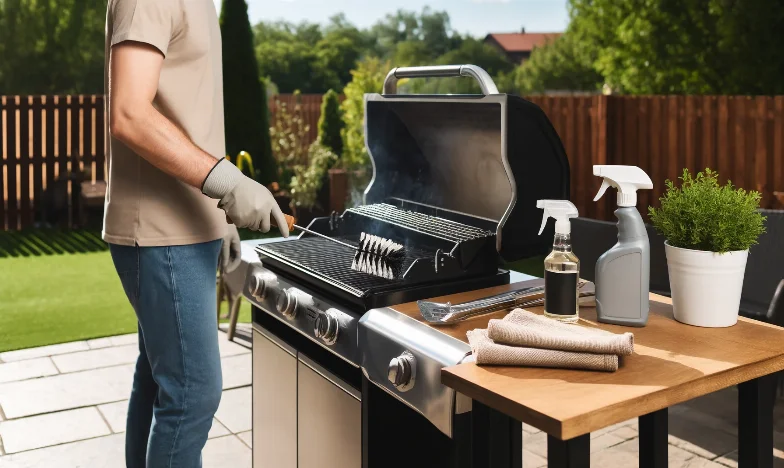The Ultimate Guide to Safe and Healthy Grill Maintenance
Grilling is a beloved pastime that brings friends and family together over delicious, flame-kissed food. However, improper grill maintenance can lead to health risks such as food contamination and harmful smoke emissions. Here’s a comprehensive guide on how to care for your grill to ensure it remains safe and healthy.
1. Regular Cleaning is Key
- Clean After Every Use: After each grilling session, while the grill is still warm, use a wire brush to scrape off any food particles and residue from the grates. This prevents the buildup of harmful bacteria and ensures your next meal is cooked on a clean surface.
- Deep Clean Monthly: At least once a month, disassemble your grill and clean each component thoroughly. Remove the grates and soak them in warm soapy water, scrub the interior with a grill brush, and clean the burners to ensure they are not clogged.
2. Prevent Rust and Corrosion
- Oil the Grates: After cleaning, apply a thin layer of vegetable oil to the grill grates. This not only prevents rust but also creates a non-stick surface for your next cookout.
- Cover Your Grill: When not in use, cover your grill with a waterproof cover to protect it from the elements. Moisture can lead to rust, which can deteriorate the grill and contaminate your food.
3. Avoid Harmful Chemicals
- Choose Non-Toxic Cleaners: Use natural or non-toxic grill cleaners to avoid leaving chemical residues that can transfer to your food. Homemade solutions such as vinegar and baking soda are effective and safe alternatives.
- Burn Off Residues: Before cooking, preheat your grill on high for about 15 minutes to burn off any remaining cleaning agents or residues from previous use.
4. Inspect for Damage
- Check Gas Connections: If you have a gas grill, regularly inspect the gas lines and connections for leaks. A simple way to check is by applying soapy water to the connections and looking for bubbles, indicating a leak.
- Look for Wear and Tear: Periodically check the grill for signs of wear and tear, such as cracked hoses or rusted components. Replace any damaged parts promptly to maintain safety.
5. Safe Food Handling
- Avoid Cross-Contamination: Use separate plates and utensils for raw and cooked foods. This prevents the spread of harmful bacteria from raw meats to cooked meals.
- Proper Storage: Store your grill in a cool, dry place when not in use to prevent the growth of mold and mildew, which can contaminate your food.
6. Grill Placement
- Location Matters: Place your grill in a well-ventilated area, away from flammable materials. This reduces the risk of fire and ensures that smoke disperses effectively, minimizing exposure to harmful fumes.
By following these tips, you can ensure your grill remains in excellent condition, providing safe and delicious meals for years to come. Regular maintenance not only extends the life of your grill but also safeguards your health and enhances your grilling experience.
